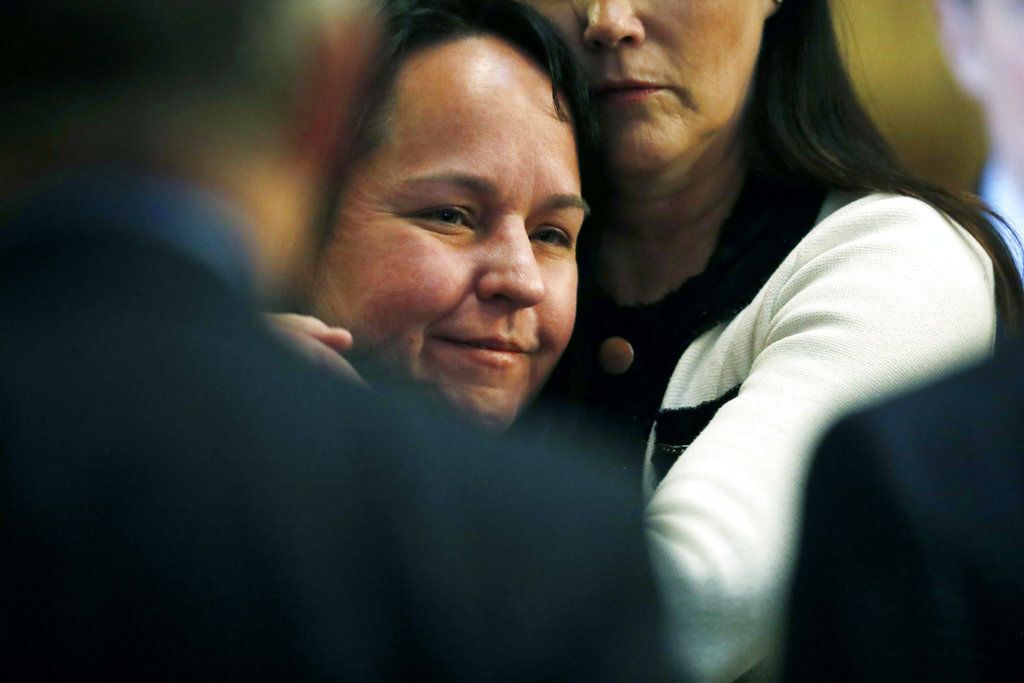Court rules against Children’s Hospital Colorado; ballot referral on sex abuse statute of limitations fails; panel rejects bill raising short-term rental tax rates | WHAT YOU NEED TO KNOW
Today is April 18, 2024, and here’s what you need to know:
One vote short, proposal on statute of limitation over sex abuse of minors fails in Colorado Senate
A proposal dealing with the statute of limitations over sex abuse of minors failed in the state Senate on Wednesday after no Republicans voted in favor of it, leaving the chamber’s 23 Democrats a vote short of sending the measure to the November ballot.
Senate Concurrent Resolution 1 would have asked voters to allow the Colorado General Assembly to pass legislation striking the state’s statute of limitations for filing a claim of sexual abuse against a child.
The current statute of limitations is six years, but supporters of the resolution say victims often wait years or even decades before they realize they’ve been abused and decide to file claims against their abusers.
The Colorado Supreme Court ruled last year that legislation passed in 2021 that removed the statute of limitations was unconstitutional because it was retrospective. That means the law would apply to actions in the past, which is barred by the state constitution.
In response, lawmakers went back to the drawing board to ask voters to grant them authority to pass that legislation. As a constitutional amendment, it would require 55% voter approval.
Federal judge sides against Children's Hospital Colorado in challenge to Defense Department rule
A federal judge on Wednesday rejected a challenge by Children’s Hospital Colorado to a new U.S. Department of Defense rule that will reduce reimbursements to the hospital system’s Colorado Springs and Aurora facilities by up to $17 million.
U.S. District Court Judge Nina Y. Wang determined the department did not exceed its authority under the law, nor did it act arbitrarily in migrating to a new method of paying children’s hospitals through TRICARE, the military healthcare program. With a methodology that now focuses on hospitals’ actual costs — rather than their historic reimbursements — Wang noted Children’s Colorado essentially wanted her to rule the government could never lower its payments to children’s facilities.
“Plaintiff’s approach would invalidate any regulation that has the ultimate effect of reducing reimbursements to a recipient hospital that has been repurposing the funds toward any end that could tend to increase” care, she wrote in an April 17 order.
Children’s Colorado and its lawyers did not immediately comment on the decision or the effects to hospital operations.
Federal judge green-lights jury trial against Denver, officers for response during 2020 protests
A federal judge agreed last month that a jury will decide whether two Denver officers and the city itself should be liable for excessive force, First Amendment violations and other infringements on a man’s constitutional rights during the 2020 protests.
After a Minneapolis police officer killed George Floyd in May 2020, international demonstrations erupted, including in Denver. Ambrose Cruz was downtown on the night of June 1 and was taking photographs when police officers shot him with pepper balls, allegedly pointed a gun at him and arrested him for violating the city’s curfew.
The city moved to end the lawsuit in its favor without a trial, but in a March 29 order, U.S. Magistrate Judge Kathryn A. Starnella determined a jury would hear some of Cruz’s claims.
Starnella also slammed the defense lawyers for making “legally incorrect statements” that “misconstrue the law” and upbraided both sides for failing to describe exactly what the city, itself, was being held responsible for.
A bill that sought to quadruple tax-assessment rates for Colorado owners of active short-term rental properties died at its first legislative committee hearing on Tuesday, even after its author attempted to scrap the controversial tax hike in favor of studying the issue instead.
Sponsoring Sen. Chris Hansen, D-Denver, called Senate Bill 33 as a tax-fairness issue and garnered Gov. Jared Polis’ support as he argued that short-term rental owners now act like commercial properties and should pay the same rate as hotels to fund local services.
As introduced, the bill would have boosted the 7.15% residential tax assessment rate on such properties to the 29% rate on commercial properties if owners rented the homes and condominiums out for at least 90 days per year.
Since the proposal emerged from the Legislative Oversight Committee Concerning Tax Policy in October, short-term rental owners and leaders of tourist-destination chambers of commerce have warned the change could decimate their economies.











